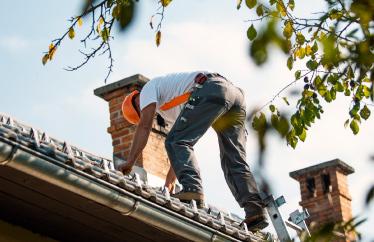Retire in Style: A Senior’s Guide to Second Homes

When you picture yourself retired, where are you? Are you sitting on your front porch in your favorite rocking chair, or do you imagine yourself somewhere more exotic and new? If the latter sounds more appealing, you aren’t alone. While retirement was typically thought to be a time of relaxation and peace, that trend is quickly falling to the wayside in favor of more adventurous golden years.
In fact, seniors are more active than ever before, looking to take on new experiences during their retirement instead of slowing down. Given that by 2030, all Baby Boomers will be 65 or older (AKA the average retirement age), there will likely be a large shift in retirement trends in the years to come.
One of these up and coming trends is owning multiple properties, either for vacation destinations or renting out to make a passive income. Though it might not be an available option for all retirees, those who find themselves with disposable income might be considering making a big purchase. If you find yourself in that category, let us walk you through the pros and cons of buying a second home and what to look for once you begin touring homes.
Why should seniors consider getting a second home?
There are a variety of reasons why seniors could consider getting another home. For example, if you’ve already paid off your current mortgage and are looking for new investment opportunities, a second home in a hot locale is a great way to make money. You may also consider buying a second home for vacation purposes, either in a favorite location or near your extended family.
When considering purchasing a second home, seniors should take into account what their goals are for retirement. If you want to stay active, a second home near the water, mountains or parks would be a great option. If you’re worried about not having enough social time, you could move to a senior-friendly area or closer to family. Meanwhile, if you’re solely looking to buy another home to make money, you should look for a home near a major city to attract renters.
Senior home buying trends
Some may say that seniors just don’t know how to use technology, but housing trends tell a very different story. According to Senior Housing News, independent living is on the rise for seniors thanks to the convenience of assistance technology like wearable health trackers and food delivery services. Seniors are more likely to stay active later in life, even seeking out unique places to own or rent in urban areas.
The reasons seniors are buying homes in recent years is changing too. The National Association of Realtors took a deep dive into 2020 generational home-buying trends and discovered exactly what motivates seniors to make big purchases later in life. Twenty-five percent of those 65+ purchased a new home specifically for retirement. Their biggest motivators were the desire to be closer to friends and family, own a smaller home or to own a turn-key home that required less maintenance. A small portion of seniors (1%) bought a home exclusively as a vacation or investment opportunity.
Pros and cons of buying a second home
Buying a home is a big decision, and that reality doesn’t go away when it’s your second home. Whereas some experts recommend that seniors go into retirement mortgage-free, you can also use your second home to offset any costs and make a more passive income once you retire. There are many things to consider before making a big purchase like this (more on that later), but first, let's dive into the pros and cons of buying a second home.
Pros of buying a second home:
There are plenty of pros to buying a second home, regardless of what you plan to do with it. Some of the benefits include:
- Opportunity to make money via:
- Short-term rentals such as Airbnb or VRBO
- Long-term rentals
- A place to vacation
- A meeting space for family gatherings
Cons of buying a second home:
If you’re thinking of buying another home, it’s important to consider the cons as well. Some of the potential downsides to buying a second home include:
- A large down payment needed
- Higher insurance rates
- Having to manage the property either:
- Yourself
- Or by paying someone else
- Having to purchase landlord insurance or second home insurance
Questions to consider
Before signing any paperwork, it’s best to ask yourself the following questions to ensure you know what you’re getting into with a second home. This will help make sure you’re fully prepared, financially and logistically for your new adventure. Make sure to consider the following questions (or create your own checklist) when touring potential homes.
General questions:
- What is the purpose of your second home?
- How much disposable income do you have on a regular basis?
- What features are you looking for in your second home?
- How much can you afford to put down on your new home?
Questions for a vacation home:
- Will your second home need any updates as you age?
- Is it suited for retirement?
- Look for a single-story, open floor plan with amenities such as a walk-in shower, lower cabinets and automatic lighting.
- What type of layout are you looking for in your new home?
- How much time do you plan to spend at your vacation home?
- Where are the nearest hospitals?
- Is your home a part of an HOA?
- Do you need to be aware of any rules for yard maintenance?
Questions for a rental property:
- Do you plan to manage the property yourself, or do you need to hire someone?
- Will you need to factor in the cost of a landlord insurance policy into your yearly expenses?
- Are you close to any major cities or other areas that would attract renters?
- What are similar rental properties going for in your area?
- Will you be able to make a profit off those prices?
What to look for in a second home
What you should look for in your second home is entirely dependent on how you plan to use it. If you plan to purchase a vacation home, you should pay attention to the layout and how your needs will change as you age. For rental properties, you should look for amenities that make your property desirable, such as an updated kitchen or a low-maintenance yard. But no matter what you plan to use the home for, always take things like location and affordability into account (also: get your home properly inspected to check for potential issues).
Vacation homes
Vacation homes should be their own type of paradise. Free from the clutter of your daily life and close to the places (or people) you love the most. So when you’re touring potential homes, it’s vital to look at a variety of factors that will help you ensure your purchase is the right one. This includes features that will help you get around as you age so that you don’t have to do a complete home remodel in the future.
A one-story home with wide doorways, lever handles on all doors and appliances, walk-in showers and easy access to laundry and storage spaces will make aging into your golden years a breeze. You should also look for a home in a place that isn’t prone to extreme weather, making it even more difficult to move around in the future. Other things to keep an eye out for include smart home devices to control your home from your phone, a security system, several bedrooms to host family gatherings and close proximity to activities that will help keep you active.
Rental properties
Deciding what rental property to purchase is a big feat. It needs to be updated enough to attract renters, but not so updated that you can’t make a profit. First, you need to understand what renters in your area are looking for when they are on their home-hunt. Do your research on recent rental sales in the area, and make sure to get your real estate agent’s expert advice on what’s popular.
Other features to look for include a low-maintenance yard, neighboring a major city, a recently updated kitchen or bathroom and several bedrooms to host a variety of families. If your new home has a large yard, smart devices already installed or any other features that stand out, make sure to include that in your listing.

Heading into retirement and purchasing another home — who said getting older was boring? Once you’ve decided what feels right for you and your family, the next step is to make sure your new investment is protected with a home insurance policy. And luckily, you don’t need a flowchart to discover what coverage is required. You can leave that up to us and get back to what retirement is known for: relaxing.



